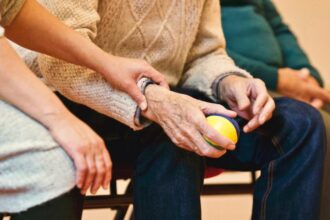Think you can’t get your patients on the right track? Think again.
In healthcare, the big trend of Shared Decision Making is only increasing. While some physicians and healthcare providers may have been dragging their feet, the events of 2020 and 2021 have only served to underscore the importance.
Shared decision-making or SDM as it is popularly called, is a proven practice for improving engagement. It is a well-documented methodology to help patients and healthcare providers make informed decisions.
Medicinal Therapies
Not everyone will agree on medicinal therapies, however, there have been some amazing advancements. Recently Oregon legalized the use of psilocybin. Washington D.C. decriminalized this active ingredient, found in magic mushrooms.
Additionally, many providers are finding CBD to have mental and physical health benefits. Research studies continue to emerge extolling the health value of CBD. Studies suggest it has positive effects on the brain. Clinical usage is finding it can aid in boosting emotional moods, memory, appetite, sleep, and immunity.
Are these treatments right for each patient? Obviously, there is not a single set answer. This is why using a shared decision-making methodology is proving to be the best way to involve patients in their treatment plans.
Mental Health Treatments
When there is more than one option, providers find that patients want to understand and become more knowledgeable. With shared decision-making, providers are able to show the evidence and build a greater sense of understanding.
Numerous studies confirm that with this type of collaboration, patients are more likely to follow through on their decisions.
Nutritional Health Treatments
As dieticians and nutritionists confirm, patient understanding is the key to compliance.
Think about it.
If you understand the number of calories in a pizza, and you know how long you have to exercise to burn it off…you have a personal insight. You’re not just thinking about how delicious that piece of pizza is. You actually know that it translates to hours on the stair master.
With this in mind, you’ll make different decisions.
Nutritionists find that collaboration is the key to defining goals, investigating potential hurdles, and making healthy choices.
Shared decision-making plays a key role in making significant nutritional changes. When patients understand the options, they have a personal motivation for lifestyle changes.
Insurance Plan Selections
Patients need to understand available insurance options. They also need to outline priorities, as these change throughout one’s life. As a provider, you can assist patients in understanding different plans, and discussing options for negotiating insurance contracts for your practice that values your patients’ priorities.
Holistic Interventions
As providers, we can assist patients with a more integrated and holistic approach. Many patients are not aware of their critical role in achieving mental and physical health. They may also be settling for sub-optimal states of health.
Providers who understand this are looking for interventions to educate, inspire, and motivate patients. Many health initiatives require higher levels of participation on the behalf of the patient. This is where shared decision-making really comes into play.
As providers, we can help patients take an active role in achieving their health goals.
We can look in greater detail at lifestyle changes such as sleep, exercise, and relaxation.
Healthy and Quality Sleep
Establishing goals for healthy sleep includes helping patients create goals for the amount of sleep, healthy habits for going to sleep, interventions for returning to sleep, and physical adjustments to create a sleep-friendly environment.
Exercise for Mental and Physical Well Being
Creating sustainable plans for exercise begins with non-structured activities such as housework, yard work, and daily exercise. It also extends to increasing structured exercise such as walking, jogging, running, and swimming. It may also include group activities such as sports, group classes, and virtual classes.
While each patient may benefit from different exercise programs, being involved in the decisions is key for taking an active role.
Relaxation for Holistic Wellness
It’s a funny thing, isn’t it—relaxation is often the last thing one thinks of in health goals. However, it can be of vital importance for patients who are suffering from anxiety, stress, and exhaustion.
Assisting your patients to set achievable goals for relaxation is a key for achieving holistic health and well-being.
Sum Up
Using shared decision-making, you can support your patients in taking an active role in achieving their health and fitness goals.










